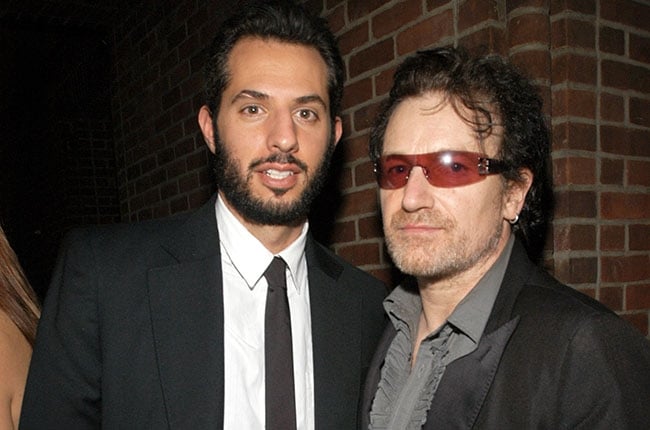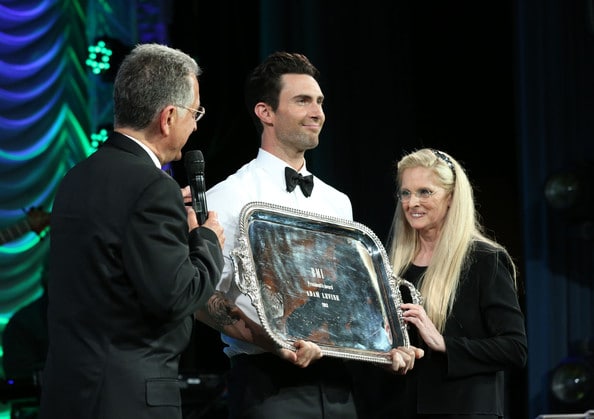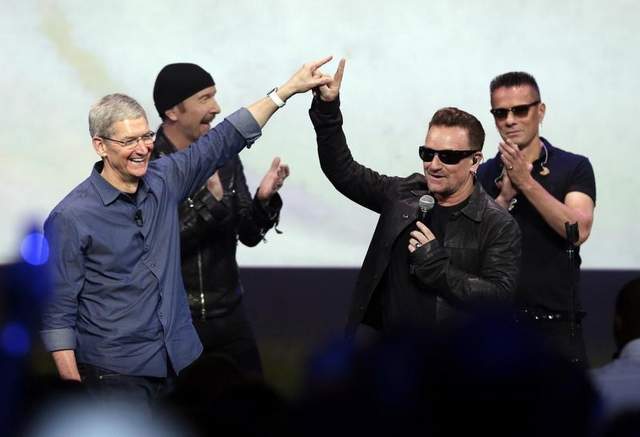The musicFIRST Coalition wants to give the drummer some.
Videos by American Songwriter
The musicFIRST Coalition wants to give the drummer some.
The musicFIRST Coalition has asked the FCC to investigate radio stations that have allegedly refused to play songs by musicFIRST artists and supporters due to an ongoing battle over royalties for musicians.
Congress is debating the signing of a bill that would require radio stations to pay musicians royalties for playing their songs on air; currently, only the writer(s) and the publisher of the song receives a royalty when their songs are plaid on the radio. The bill, dubbed the Performance Rights Act, is currently opposed by the National Association of Broadcasters, which represents the radio industry.
The AP posted an article today, suggesting that U2’s last single, “Get on Your Boots,” may have been blackballed by some radio stations, due to the fact that U2 frontman Bono has been a vocal supporter of the Performance Rights Act. Here’s an excerpt from the AP article:
* * *
WASHINGTON — Which top-selling artist purportedly had his new single yanked from some radio stations playlists in retaliation for supporting royalties for musicians?
No one involved will name the recording artist, but his no-play treatment by several radio stations is alleged in a complaint filed with the Federal Communications Commission and obtained by The Associated Press. It claims recording artists are being threatened and intimidated.
In the filing, the musicFIRST Coalition says the top-selling artist — there are hints it could be U2 frontman Bono — recently released a new album and spoke during April in support of an effort to require radio stations to pay musicians royalties similar to those paid to songwriters.
Soon after, it said, “several stations within a major radio broadcast group notified the artist’s label that they would no longer play his single on the air.”
Representatives for musicFIRST refused to identify the artist. The complaint said artists asked to remain unidentified “to protect against further reprisal.”
U2’s album, “No Line on the Horizon,” was released in March with its leadoff single, “Get on Your Boots.”
In April, Bono issued a statement on behalf of pay for musicians, saying, “It’s only fair that when radio makes money by playing a recording artist’s music … the recording artist should be compensated just as songwriters are already.”
Calls and e-mails to a spokeswoman for Bono were not immediately returned.
The National Association of Broadcasters, which represents about 6,500 radio stations nationwide, denied any attempt by stations to retaliate or intimidate artists. A statement by NAB Executive Vice President Dennis Wharton called the complaint a “stunt” and said artists who support royalties, such as will.i.am, get great play on the radio.
His group Black Eyed Peas is “currently Number 1 on Billboard’s Pop 100 Airplay Chart with the song ‘Boom Boom Pow,’” said the statement. The single was distributed in May, and the group’s new album, “Behind the Front,” was first distributed in June.
* * *
NAB EVP Dennis Wharton issued the following statement: “This allegation is nothing more than an act of desperation by a record label lobby losing on Capitol Hill and in the court of public opinion. On one hand, it highlights the unparalleled promotional value of free radio airplay, which has propelled countless artists to stardom. We would also note that Will.i.am, a vocal proponent of the performance tax, and his group Black Eyed Peas are currently Number 1 on Billboard’s Pop 100 Airplay Chart with the song ‘Boom Boom Pow.’ If there’s an FCC probe involving the music business, it ought to focus on claims from numerous artists — from The Beatles to Prince to Cher — that they were cheated out of royalties by their record labels.”
Read more of Wharton’s comments here.














Leave a Reply
Only members can comment. Become a member. Already a member? Log in.